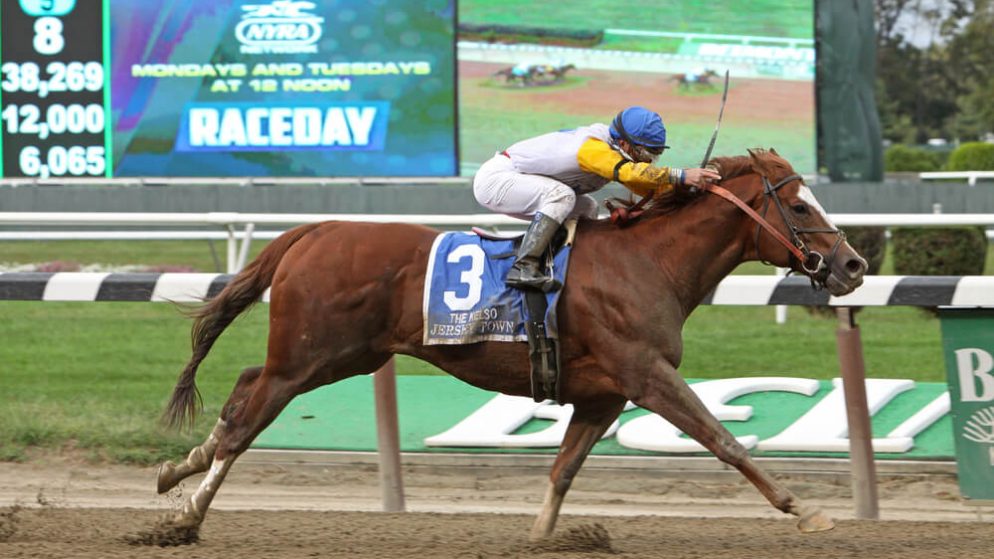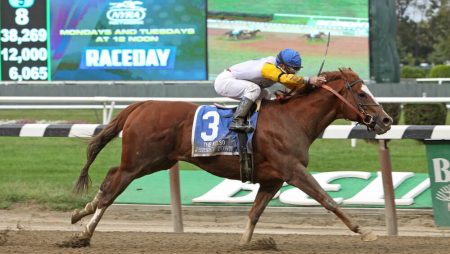

In the ever-evolving realm of the gambling industry, change is the only constant. Once again, New Jersey emerges as a leader, leading progressive ideas in the vibrant landscape of gaming. This time, the spotlight is on the state’s racetracks, which are seeking the privilege to house slot machines alongside their existing sports betting offerings.
What we cover
Why the Push for Slot Machines?
The desire of New Jersey racetracks to introduce slot machines stems from various strategic considerations. One primary motivation is the potential for increased revenue. Slot machines, known for their widespread popularity and profitability, could provide a lucrative stream of income for racetracks.
The allure of slots lies in their broad appeal to a diverse audience, offering a more inclusive and engaging gambling experience. Additionally, the introduction of slot machines could enhance the overall entertainment value at racetracks, attracting a broader demographic of visitors.
By diversifying their offerings beyond traditional horse racing and sports betting, racetracks aim to create comprehensive entertainment hubs that cater to a variety of preferences. So why have racetracks not already had slots?
The absence of slot machines at New Jersey racetracks can be attributed to historical regulations and legislative constraints. Unlike Atlantic City casinos, which were granted the privilege of hosting slot machines in the past, racetracks faced restrictions that limited their gaming options.
Plus, concerns about potential competition and the impact on existing casinos may have played a role in the delay. Striking a balance between the interests of different stakeholders, including traditional and online casinos, racetracks, and legislators, has been a complex challenge.
Registration has already been filed
In a bid to further diversify gaming options, New Jersey racetracks have already filed new legislation for the privilege to incorporate slot machines into their offerings. New Jersey senator Sen. Joseph Pennacchio (R-Morris) introduced legislation titled the Senate Concurrent Resolution 14.
The proposed statute puts forth a constitutional amendment that, if passed, would grant the state legislature the authority to introduce slot machine gambling at horse racetracks. This would open the door to slot machine gambling at horse racetracks, challenging the existing limitations and sparking a conversation about the future of gaming in the Garden State.
Currently, New Jersey’s Constitution confines Las Vegas-style casino gambling exclusively to Atlantic City. This constitutional restriction has been a defining characteristic of the state’s gaming landscape. However, recent legislative developments, such as Senate Concurrent Resolution 14 introduced by Sen. Joseph Pennacchio, suggest a potential shift in this paradigm.
Despite multiple attempts in various legislative sessions, previous efforts to permit casinos in the northern regions of New Jersey and introduce slots at racetracks have faced consistent setbacks. For instance, Sen. Joseph Pennacchio has been a persistent advocate for racino legislation since 2014, continuously working towards expanding gaming options in the state.
However, these endeavors have encountered obstacles, highlighting the complex and challenging nature of altering the existing gaming landscape in New Jersey. If the proposed constitutional amendment successfully passes and allows the introduction of slot machines at New Jersey racetracks, the generated revenue would be strategically allocated.
The funds generated from the expanded slots initiative would be earmarked for significant purposes, including contributions to the state’s retirement program. Additionally, the revenue would provide crucial support to state horsemen, contributing to the welfare and sustainability of the horse racing industry.
Furthermore, a portion of the proceeds would be directed towards public investments in Atlantic City, potentially boosting economic development and initiatives in the iconic coastal city.
New Jersey racino details
Senate Concurrent Resolution 14, the proposed legislation to introduce slot machines at New Jersey racetracks, outlines a strategic plan for its implementation. In the event that SCR14 gains sufficient traction and garners support from legislators, the statute aims to present the proposition to voters during the 2024 presidential election.
Currently, there are three qualifying racetracks in the state: The Meadowlands in East Rutherford, Monmouth Park in Oceanport, and Freehold Raceway. All three establishments are currently authorized to provide both on-site and mobile sports betting services, contributing to the diverse range of gambling options available in the New Jersey landscape.
The potential introduction of slot machines at New Jersey racetracks hinges on a strategic process outlined in Senate Concurrent Resolution 14. Should the referendum on racetrack slot machines garner a simple majority of support, the New Jersey Legislature would then be empowered to pass legislation officially authorizing such gambling activities at the tracks.
Notably, the proposed racino slots would be subjected to the same 8% tax rate applied to physical slot machines in Atlantic City based on their gross gaming revenue. Senator Joseph Pennacchio, the proponent of the legislation, has outlined a thoughtful allocation plan for the generated tax revenue.
Under his proposal, 60% of the tax funds would be earmarked for the state pension program, benefiting public employees. Thirty percent of the revenue would be directed to the nine casinos in Atlantic City, supporting the economic vitality of the city.
Additionally, 7% of the tax proceeds would be dedicated to funding economic improvement projects in Atlantic City, contributing to the city’s growth and development. Finally, the remaining 3% would be allocated to benefit the horsemen, recognizing and supporting the vital role they play in the state’s racing industry.
Senator Joseph Pennacchio’s introduction of Senate Concurrent Resolution 14, unfortunately, is likely to face opposition from the state’s nine casinos. The casinos, situated in Atlantic City, have historically opposed such measures, emphasizing their concerns about the recovery of the gaming industry from the impacts of the COVID-19 pandemic.
Final Thoughts
The opposition from the casinos underscores the complex dynamics involved in expanding gaming offerings within the state and highlights the ongoing challenges faced by the gaming industry in adapting to evolving market conditions. As the legislative process unfolds, the differing interests and perspectives of stakeholders in New Jersey’s gaming landscape will continue to shape the trajectory of such proposed amendments.





